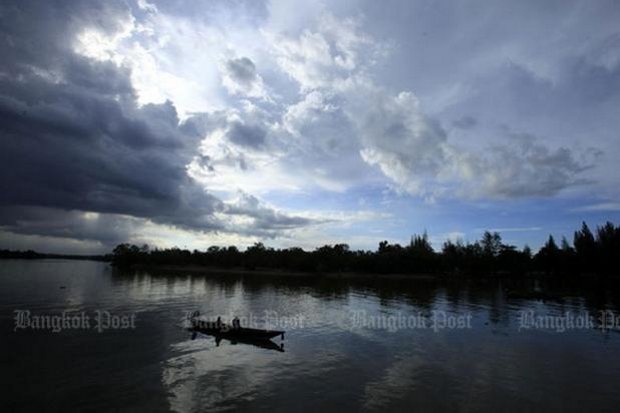
The upper stretch of the Tapi River in Nakhon Si Thammarat province has been judged as having the cleanest water in Thailand in over five years, according to the Pollution Control Department.
Rangsan Pinthong, director of the Water Quality Management Bureau, said the upper portion of the Tapi met criteria for the best water quality in the country, according to the latest survey between July and September, particularly as it has a small number of microorganisms and a low amount of chemicals.
He said the stretch of water was in a pristine location with little agricultural and industrial activity, a unique situation compared with other river sources.
The 232-km river runs from Luang mountain in Nakhon Si Thammarat across to the Gulf of Thailand in Surat Thani's Muang district.
The department faces the challenge of how to raise local awareness about protecting and preserving the best river stretch in the country, said Mr Rangsan.
"It is not easy to find a river with the 'best' quality water in the country. Normally, we only find rivers with 'good' quality water. It is the first time in five years that we found a river with 'best' quality water," he said.
The department uses five criteria to gauge the quality of water: dissolved oxygen concentration, biochemical oxygen demand, total coliform bacteria, faecal coliform bacteria, and ammonia.
It said there were also 17 "good" quality rivers, 26 "fair" quality rivers, 20 "deteriorated" quality rivers and one "very deteriorated" quality river.
Mr Rangsan said the lower Chao Phraya River has the worst water quality due to chemical contamination from agriculture and industry.
The department found households discharging waste water was a major cause of pollution in rivers as the water does not go through a treatment system before reaching the river.
It said about 9.8 million cubic metres of waste water is discharged each day nationwide, of which only 3.5 million cu/m are treated before discharging.
In another development, Thanasak Wattanathana, the governor of the Metropolitan Waterworks Authority, yesterday said usable water levels in four major dams nationwide have reached 4.2 billion cu/m which will be sufficient for consumption and ecosystem restoration for the next 200 days.
Narong Leenanon, a deputy-director of the Royal Irrigation Department, said the water volume in the Vajiralongkorn and Srinagarind dams will be reserved for provinces along the Mae Klong River basin during the dry season next year.
Mr Narong said the two dams currently hold about 4.7 billion cu/m of usable water in total, which is insufficient for off-season rice cultivation.
He urged farmers to grow alternative crops that consume less water, and to refrain from operating fish and shrimp ponds.
Of the water volume, 300 million cu/m will be kept for consumption, 1.7 billion cu/m for maintaining the ecosystem, 950 million cu/m for agriculture and 1.75 billion cu/m for wet-season rice paddy fields, Mr Narong said.